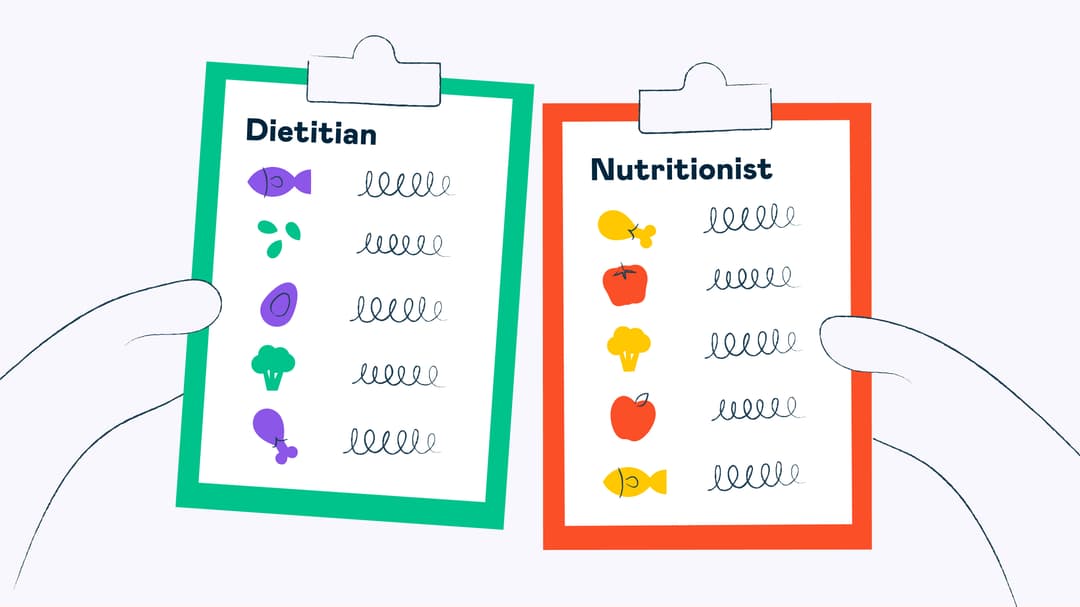All Categories
Featured
Table of Contents
The kinds of Nutritionists are: and. The previous are those people that utilize the scientific approach to examine nutrients, both as specific substances and as they interact in food and nourishment while the last are professionals that help in diagnosing the nutritional issues of areas and in discovering options to those issues.
: They work with health cares and international wellness organizations.: They are liable for large food preparation and service.: They are professionals in nutrition and aging. They are Board certified in Gerontological Nutrition with the American Dietetic Association.: They are primarily entailed with dietary associated research study in the clinical element of nutrition in disease states, public facet on primary, second and sometimes tertiary health and wellness avoidance and foodservice facet in problems including the food prepared for individuals.
What Is The Best Sports Nutritionist?
, and papers-- either as a professional visitor point of view, routine reporter or visitor, or for resource, restaurant, or recipe advancement and critique.: These work under exclusive method. As explained over, all dietitians are nutritionists however not all nutritional experts have the credentials and qualifications to be called dietitians.
This implies exactly the same point as Registered Dietitian (RD), a term that has been in usage for a long time. All RDs are RDNs yet some choose to call themselves that and some do not. Further making complex matters are license requirements. While certification to come to be an RD or RDN is regulated by the Academy of Nutrition and Dietetics a nationwide organization licensure is managed by private states.

In order to supply medical nutrition therapy and qualify as suppliers for insurer, a dietitian has to be certified by the state. According to the Bureau of Labor Statistics, the need for dietitians and nutritionists is expected to boost by 20% in between 2010 and 2020 this is a much faster development price than the average for all line of work.
What Does Sports Dietitian Cost?
There are considerable differences in compensation based on field of expertise, with Medical Pediatric Dietitians and Milk Nutritionists averaging about $90,000. In 2014, The Bureau of Labor Stats (BLS) discovered that the top 10% of dietitians and nutritional experts earn more than $79,000, and the bottom 10% much less than $36,000 - Nutritionist Dietitian. A mean hourly wage of $27.62 was determined for both fields, with the top 10% earning above $38.00 per hour, and the lower 10% earning listed below $17.00 per hour

Nonetheless, there is a selection of work offered in various environments for those that wish to deal with the general public, in addition to for those who favor even more research-focused work. Several enter into one of these fields in order to help individuals live much healthier lives which can be tremendously gratifying.
With present data that one-third of the united state populace is obese, along with a a great deal of elderly united state residents, dietitians and nutritionists are likely to have a more substantial duty in the future. My Strategy ranks dietitians and nutritional experts at # 53 in their happiness index of leading 300 occupations with the highest possible job contentment ratings.
In enhancement to attending a certified program, many states require dietitians to be licensed or to have expert qualification, or both.
How Much Should I Pay For Pregnancy Dietitian Services?
Nonetheless, it is necessary to keep in mind that beginning Jan. 1, 2024, you'll also need to hold a master's level to earn an RD/RDN credential. Typical bachelor's levels for dietitians include clinical nutrition, dietetics, and public wellness. Your core classes may consist of: Food science Chemistry Health and wellness care policy Medical nutrition Biostatistics Microbiology Food service administration You'll likewise need to complete a dietetic teaching fellowship.

And to progress in the area, you'll likely require a master's degree. So, whether written in regulation or not, dietitians and nutritionists often times require a similar education and learning. Typical bachelor's levels for nutritionists consist of nourishment science or a relevant discipline, such as dietetics, kinesiology, food system administration, or biochemistry and biology. A few of your training courses may include: Patterns in nourishment Biomedical stats Professional nutrition Food, nourishment, and behavior Nutritional ecology Community nourishment Physiology Some degree programs include internships, yet in others you'll need to locate chances by yourself.
The variety of hours you'll require might depend upon demands in the state where you'll work. Whether you prepare to gain a credential or otherwise, it's a great idea to finish at least one teaching fellowship to gain useful experience before looking for a full-time function. Licensing and accreditation demands for nutritional experts and dietitians vary from state to state.
How Much Does It Cost To Hire A Heart Health Nutrition?
An expert qualification shows your experience and knowledge in your area. Here are the leading accreditations for dietitians and nutritionists.
The titles are basically the same. There's no expert difference in between them, and you're cost-free to choose which one you wish to use based on individual choice. To take the qualification test, you need to: Gain a bachelor's degree that's recognized by the ACEND Complete a dietetics teaching fellowship After Jan. 1, 2024, you'll need to earn a master's degree to get the certification.
Should I Hire A Professional Pressure Washing Contractor?
There is an array in incomes, with the lower 10% around $44,910 and the top 10% around $98,830, according to the BLS. Nutritional expert and dietitian functions are expected to grow 6.6% with 2032, according to the BLS.
This doesn't imply that one profession is premium to the various other, as they both have various features and qualifications that might sometimes overlap. If you wish to discover more concerning what makes these professions distinctive, keep reading. Diet professionals are specialists that help enhance the lifestyle with healthy food choices.
What Does Celiac Dietitian Cost?
Nutritional expert recommendations about nourishment's influence on health and wellness. They aid individuals take on much healthier means of consuming and develop personalized strategies based upon goals. Their solutions consist of nutritional analysis and therapy, dish planning and developing healthy eating programs. Some have formal education and learning and credentials, others might have extra basic qualifications. The area is much less controlled than dieticians; therefore, nutritionists' degrees of proficiency and credentials can vary.
There are several distinctions in between dieticians and nutritional experts. Below are the training and background specs. Dieticians typically hold a bachelor's degree in dietetics, nourishment, or a relevant field. As their careers advancement, numerous dieticians go after advanced degrees, like a Master's or Doctorate, to specialise in details locations of nutrition. Dieticians need to carry out monitored functional training as component of their education and learning to obtain hands-on experience in medical settings, community nourishment programs, or food service management.
Latest Posts
How Do I Choose A Personal Trainer On Line Service?
What Is The Best Balanced Meal Planning Company?
Paediatric Dietician